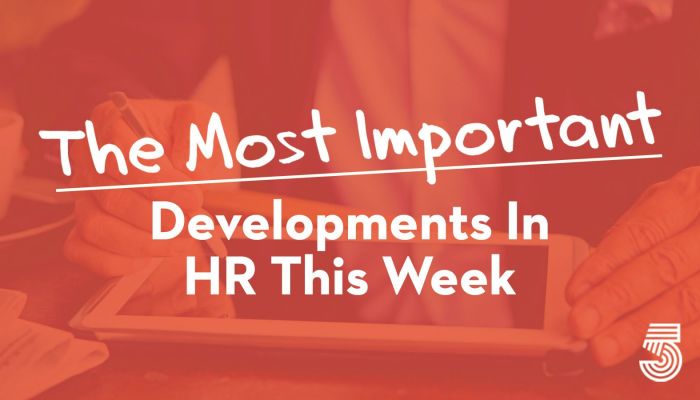The M.I.D., as we call it, is curated by our editorial team from more than 50 news sources. Like a lot of good ideas, this started as something I wanted for myself. If I can’t read everything, I at least want to stay abreast of the most important developments.
This week in HR, we learned the skills gap discussion need a new context, Disney employees protested the company’s tepid response to the Don’t Say Gay bill, the NYT podcast put corporate citizenship in context, HR got a heads-up about transformation, and women might face a disadvantage working remotely.

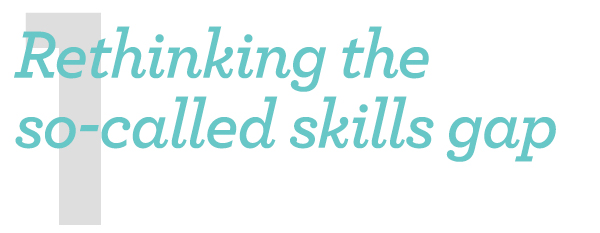
Unemployment, income inequality, and a host of other economic challenges have all been blamed on the so-called “skills gap.” But addressing this gap requires first correcting a fundamental misdiagnosis of the problem that has plagued so-called “low-skill” workers. This misconception — that “low wage” is synonymous with “low skill” — unfairly devalues workers, making “low wage” a self-fulfilling prophecy and perpetuating inequality. It exacerbates racial and economic inequalities, since Black, Hispanic, and rural American workers are disproportionately likely to face unwarranted “low wage” bias. But it also means that many of the employers currently seeking 10.9 million workers are looking in the wrong place — and many of the skills they seek are available in the population of roughly 9 million job-seekers right in front of them. Forbes

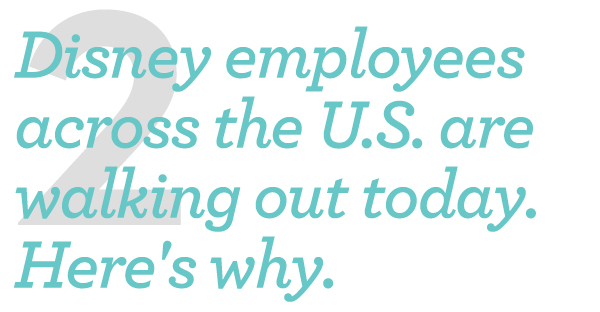
Walt Disney Co. employees at corporate locations across the U.S. got up from their desks and headed to the exits Tuesday to protest CEO Bob Chapek’s response to Florida legislation that LGBTQ advocates have dubbed the “Don’t Say Gay” bill. Hundreds of protesters marched outside Disney’s headquarters in Burbank on Tuesday afternoon. In recent weeks, Chapek has come under intense internal criticism and public scrutiny for not having taken a more forceful stand against the bill. Chapek, who ascended to the throne of the Magic Kingdom in 2020, apologized directly to employees in a letter released March 11. “It is clear that this is not just an issue about a bill in Florida, but instead yet another challenge to basic human rights. You needed me to be a stronger ally in the fight for equal rights and I let you down,” Chapek said in the letter. “I am sorry.” But the letter did not end the outcry. The furor underscores a new reality for corporate titans, especially in the media and entertainment industries: Employees are increasingly unafraid to push back against policies they view as offensive or wrongheaded. NBC News

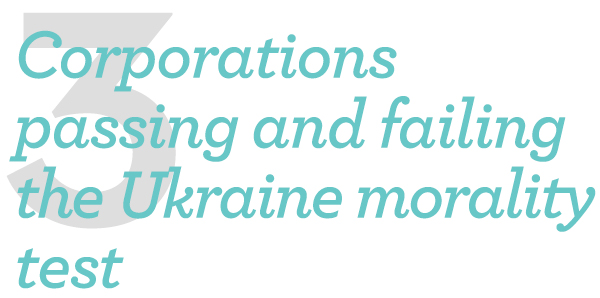
Since the start of Russia’s invasion, several hundred U.S. companies have announced plans to withdraw from or step down their operations in the country. The idea, says Jeffrey Sonnenfeld, a professor at the Yale School of Management, is to make Russia such a pariah that Putin is forced to back down. Sonnenfeld, who’s been called a “C.E.O. whisperer,” is working with his team to compile a corporate watchlist for Russian engagement that effectively serves as a hall of fame, and a hall of shame. In this conversation with Kara Swisher, he discusses when business blackouts will reach a tipping point and result in real change — the way the anti-apartheid boycott did in South Africa. NYT Sway Podcast

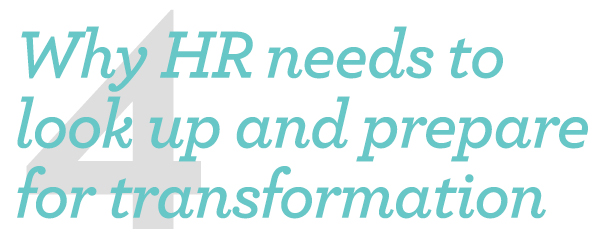
Imagine your organization is on the brink of explosive growth and is about to issue an IPO. Everyone is excited about the opportunities the growth will bring, and activity is focused on ensuring Operations is ready to roll out to new markets. Sales and marketing have activated their playbook to generate business, construction on the new location is just about done, and then Talent Acquisition gets the request for 1,000 new associates to be ready to go in the next three months. Unfortunately, Talent Acquisition is still using a manual process to recruit and pre-hire new employees and cannot meet the demand without adding headcount. This hurts their credibility with the business and delays the grand opening, impacting the IPO. If only Talent Acquisition had anticipated the demand on their capacity and worked with the business to build scalable processes before the IPO and growth, they could have avoided the need to rely on resourcing to supplement a broken process. HR Executive

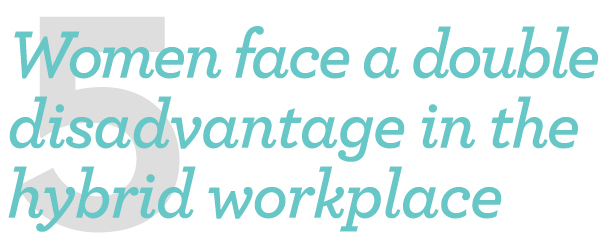
In recent polls, women typically report that they want to work fully or partly remotely at levels about 10% above men. The benefits they see include better work-life balance and more control over their time, making it easier to manage their families’ activities, in addition to the time and money they save by not commuting. But what about hybrid work arrangements, where some employees are co-located and others are remote? Will these be good for women’s careers — their opportunities for promotion, advancement, and progression? In a flexible hybrid system, the same employee is sometimes co-located and sometimes remote. In a fixed hybrid system, some employees are always co-located while others are always remote. I believe we can be cautiously optimistic about how women will fare in a flexible hybrid system. There are pretty compelling reasons to be less optimistic about how women will fare in a fixed hybrid system, where they work remotely full-time while at least some of their colleagues are co-located. Especially here, leaders must be aware that women risk being doubly disadvantaged by working remotely in a hybrid system. HBR







